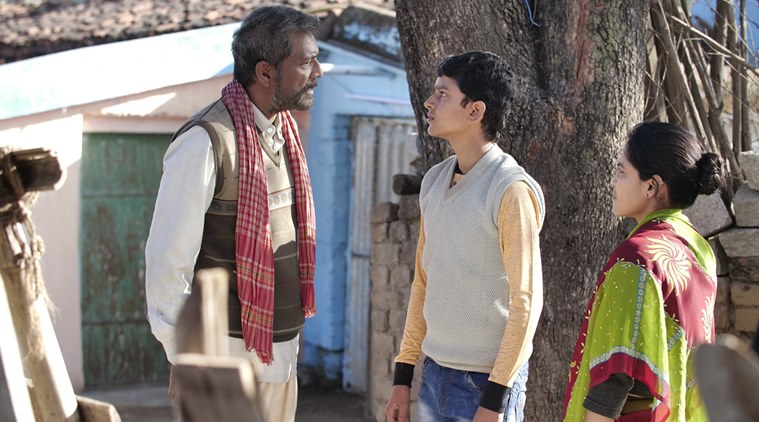By Rachit Raj
If to be well-intentioned as a filmmaker was the primary criterion for a film to be good, then Prakash Jha’s directorial Pareeksha would have been a stellar work of art. But the truth is a little more complex than that. In his pursuit of telling a story with a larger social purpose, Jha has faltered to deliver a coherent, engaging cinematic experience in his latest offering, despite a commendable performance by Adil Hussain.
Jha returns to his concerns with the Indian education system again after Aarakshan (2011), this time speaking of the economically underprivileged. The larger arc of the film is quite simple. Bucchi (Adil Hussain) is a rickshaw puller in Ranchi, who wants to do everything to ensure his son Bulbul (Shubham Jha) gets a good shot at a life that is better than the one Bucchi has gained for himself and his family.
A private school becomes the guarantee for a better future, in Bucchi’s mind. A school far from his thin pockets. But Bucchi is determined, and in that determination he goes from white to shades of grey, justifying everything by the simple rationale of everything leading to a better life for his son.
The film at once wants to be a story of emotional turmoil, as well as a thinking guide for the audience to question the system that is unfairly biased towards those with big pockets. Pareeksha functions on a very bland base to work as both. The film is dated and distasteful. It employs clichés like the poor man standing in rains with his son, waiting for the big-school principal to come in her lavish car, or the desperate father trying to commit an immoral act but still helping an old man up, leading to him being caught red-handed.
Jha, who we are told has adapted the narrative from a real-life story, gets greedy in his pursuit of churning the most out of this story. With an amicable arc, that resembles in parts with the 1948 masterpiece Bicycle Thieves. With social commentary on the education system peppered along the way, Jha had a potential winner at hand. Sadly, he suffocates his own ambitions by cushioning the story with relentless melodrama and manipulative emotions.
There is nothing wrong with the two things, essentially. A story like this comes with the promise of an emotional chord. But the problem is when you start to notice how the filmmaker is trying to birth that emotion out of you. In Pareeksha, the tricks are too repetitive and regressive. After all these years, there has to be a better way to convey emotions. To spell out everything – every fear, intention, indecision, and injustice – becomes an amateur storytelling device.
The first half of Pareeksha is choppy and half-baked, but a part of you stays invested because of an earnest Adil Hussain trying his best to create an emotional core to a story that forgets him in the second half as if his struggle never mattered. It is here that Pareeksha commits its cardinal sin.
A high-ranking cop (Sanjay Suri) has a strange, erratic subplot involving him becoming a teacher for the underprivileged, reminiscent of another tired, treacherous subplot in Jha’s Aarakshan. It is here that the film completely crumbles under its own chaos. The story tries to become more about the economically impoverished students as a whole, and not just Bulbul, which the narrative refrains from soon, returning to Bulbul’s cause again before the end credits roll.
Veteran filmmakers like Prakash Jha are often defeated by their desire to hold on to a kind of filmmaking that belongs to a bygone era. Their drama is dated, and their themes, while still explorative, are morphed in a decade that welcomed their prime. In that sense, Pareeksha is a reminder that a good film is not made by good intentions and a big name on the director’s chair, but by remaining true to the times it is being made in and finding the grammatical accuracy best suited for the story being told.
(Pareeksha is streaming on Zee5)







Leave A Comment
You must be logged in to post a comment.